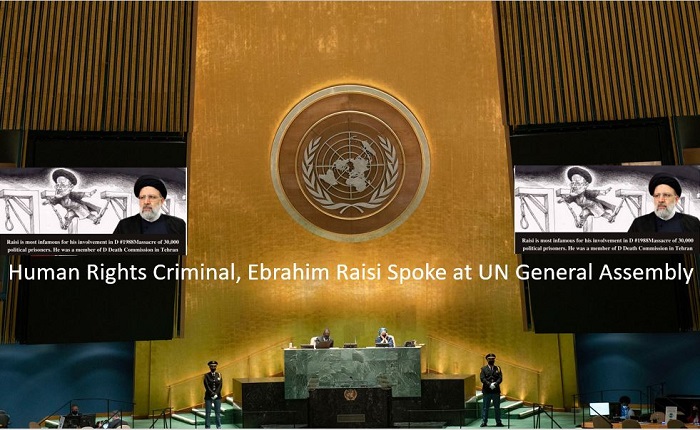President Ebrahim Raisi, who was newly inaugurated, gave a speech to the United Nations General Assembly on Tuesday. In Iran, Rasi is known as the “henchman of 1988” as one of four officials appointed to the Tehran “death commission” in response to a fatwa targeting the People’s Mujahedin of Iran (PMOI / MEK Iran) and other committed opponents of the theocratic rule.
All MEK members guilty of “enmity against God”
Ruhollah Khomeini, the regime’s founder, and first supreme leader declared all MEK members guilty of “enmity against God” and commanded subordinate officials to execute them mercilessly.
Almost the course of three months, the Tehran death commission’s operations were replicated in a number of other cities, bringing the nationwide death toll among political prisoners to over 30,000.

A conference in Stockholm
On the same day, in a conference in Stockholm, a former Iranian political prisoner by the name of Nasrollah Marandi said, “Most of us who were in Evin and Gohardasht prisons saw Ebrahim Raisi in the death commission, and he sent thousands of prisoners to the gallows.
On August 5, Iranian activists condemned the European Union for sending Enrique Mora, the European External Action Service’s deputy political director, to attend the ceremony and help legitimize the Raisi administration in the eyes of the West.
This, of course, was in complete contradiction to the message that the Iranian people and the Iranian Resistance had given by boycotting the sham presidential election and all subsequent public demonstrations.
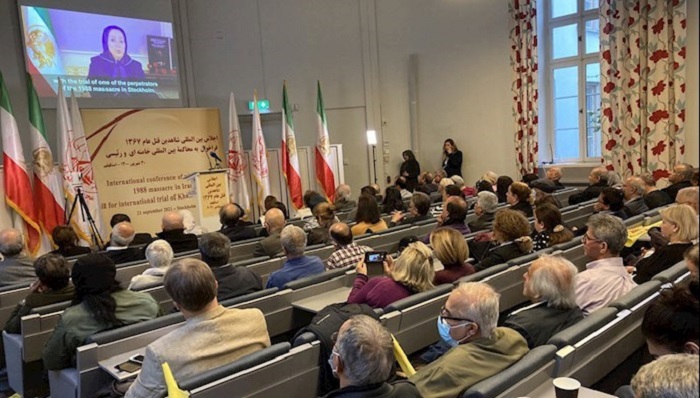
The EU encourages the mullahs’ regime
The EU made a mistake by not only dismissing the Iranian people’s will but also by encouraging the religious regime’s long-standing sense of impunity.
The worldwide indifference of the 1988 massacre was one of the initial causes of that impunity. The increase in politically motivated killings around that period was well-documented, and it was even highlighted in a United Nations resolution on Iran’s human rights at the end of the year.
However, all relevant UN authorities failed to follow through on that resolution in any meaningful way, as a group of UN human rights experts noted in an open letter last year.
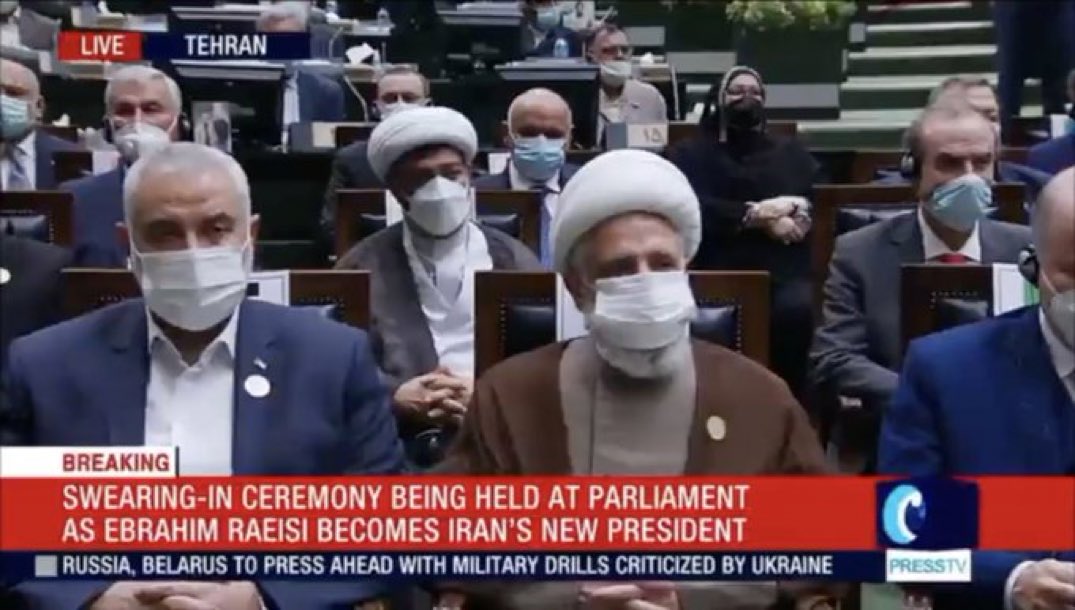
General situation of human rights in Iran
The failure “had a devastating impact on the survivors and their families, as well as on the general situation of human rights in Iran,” according to the letter.
Tehran’s impunity in the 1988 massacre and in the area of human rights, in general, has led to the expectation of the same impunity in all of its other nefarious activities.
This is evident in the Raisi administration’s whole composition. While his appointment is undoubtedly the regime’s most outspoken endorsement of the 1988 massacre, subsequent appointments of cabinet ministers and leaders of government institutions reflect similar endorsements of crimes and provocations with far-reaching implications far beyond Iran’s borders.
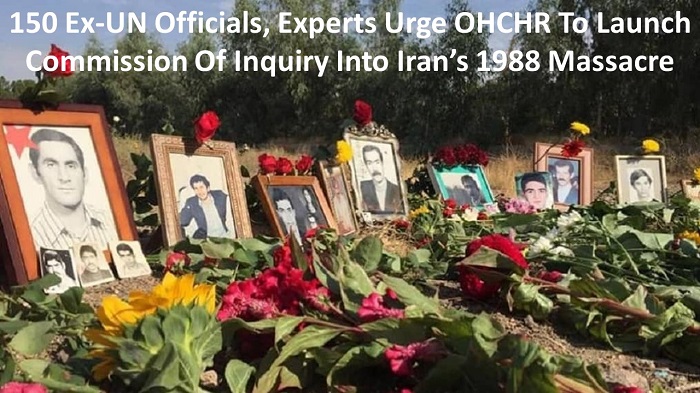
The embodiment of four decades of mullahs
Following Raisi’s announcement of more than a dozen cabinet appointments in August, NCRI President-elect Mrs. Maryam Rajavi described the new administration as “the embodiment of four decades of mullahs’ religious dictatorship and terrorism, whose primary mission is to confront the people’s uprising, and to plunder the national wealth, step up terrorism and warmongering, and expand the unpatriotic nuclear and ballistic missile programs.”
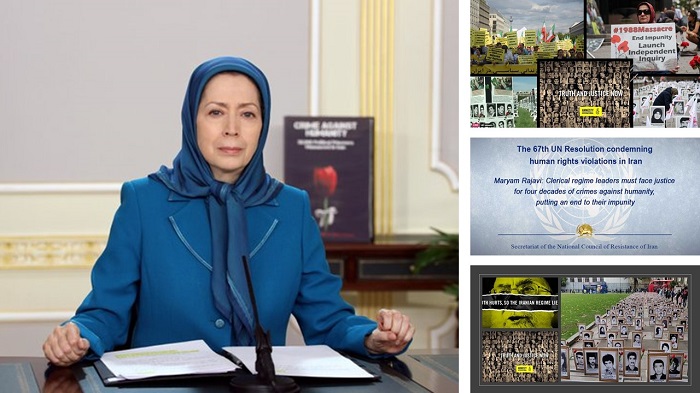
Western policies toward the religious regime
Mrs. Rajavi made repeated appeals for more assertive Western policies toward the religious government, as well as actions leading to Ebrahim Raisi’s international prosecution for his role in the 1988 massacre.
In the absence of such a policy shift, Tehran’s perception of impunity will only grow, with serious consequences for both the Iranian people and the international community.
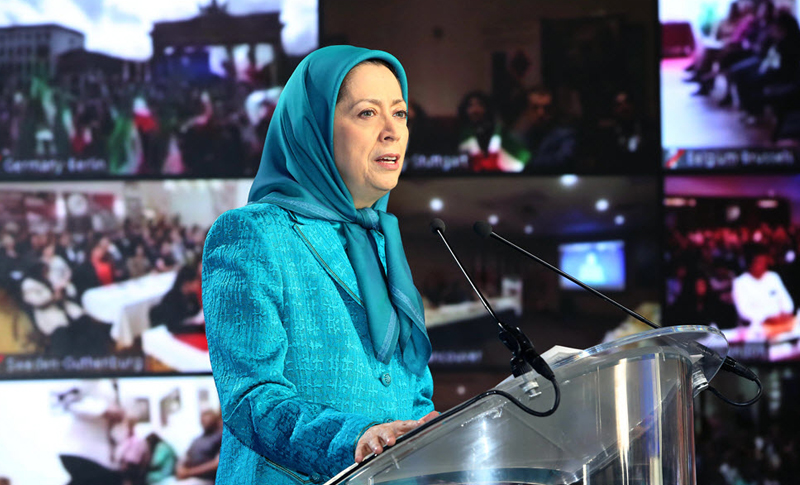
Follow Maryam Rajavi’s on her site Twitter & Facebook and follow NCRI (Twitter & Facebook)
and follow NCRI (Twitter & Facebook)
MEK Iran (on Twitter and Facebook)
and People’s Mojahedin Organization of Iran – MEK IRAN – YouTube


